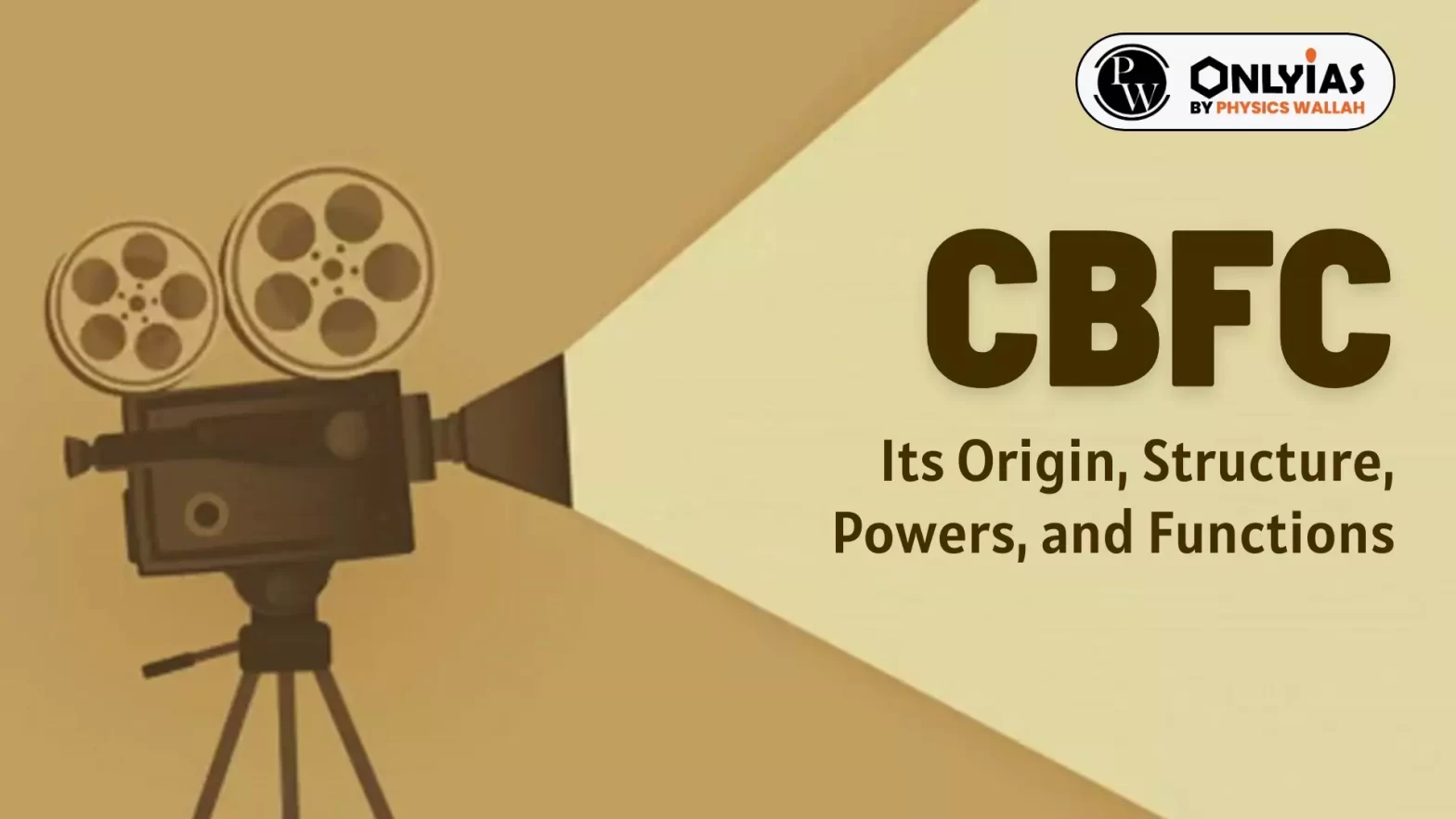CBFC is a statutory film-certification body working under the Union Ministry of Information and Broadcasting.

The CBFC or Central Board of Film Certification is a statutory film-certification body working under the Union Ministry of Information and Broadcasting.
| Must Read | |
| NCERT Notes For UPSC | UPSC Daily Current Affairs |
| UPSC Blogs | UPSC Daily Editorials |
| Daily Current Affairs Quiz | Daily Main Answer Writing |
| UPSC Mains Previous Year Papers | UPSC Test Series 2024 |
The Central Board of Film Certification (CBFC) is a statutory film-certification body working under the Union Ministry of Information and Broadcasting.
The CBFC has been mandated to regulate the public exhibition of films under the provisions of the Cinematograph Act 1952. Films can be screened in cinemas and on television only after certification by the board and edited.
The board is made up of a chairperson and 23 members, all of whom are appointed by the central government. Members of the board are chosen from the fields of social science, education, law, the arts, and filmmaking.
The CBFC has been given powers under the act to certify films under four categories. It includes U, A, U/A and S.
FCAT was set up under the Ministry of Information and Broadcasting as per Section 5(D) of the Cinematograph Act, 1952, to hear appeals filed by applicants aggrieved by any order of the Central Board of Film Certification (CBFC).

<div class="new-fform">
</div>